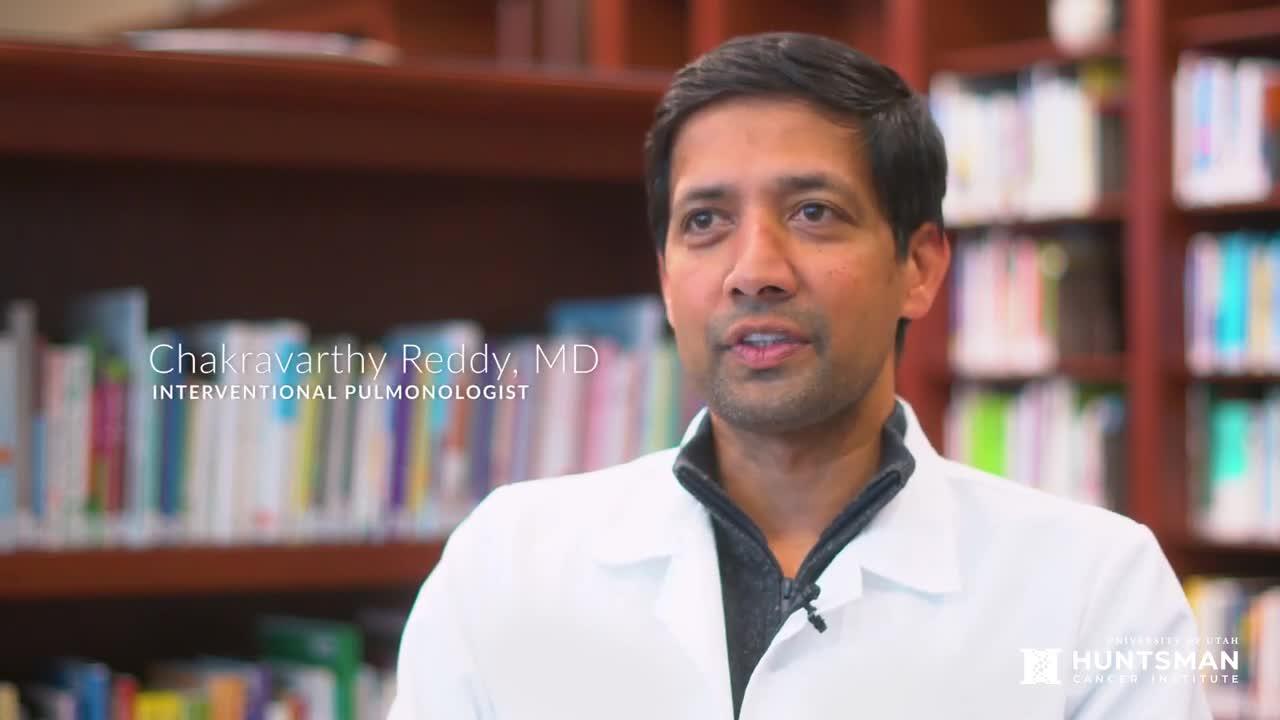
Video transcript
Hi, I’m Chak Reddy. My job involves using different tools to find and treat conditions—like cancer—in the lungs. Many patients I see are suffering from advanced lung cancer, which means they’ve been diagnosed later in their cancer’s development. Part of our mission at Huntsman Cancer Institute is to find cancer in a person as early as possible when it’s smaller and easier to treat. The way we find these smaller cancers is through screenings or tests.
If you smoked a pack per day of cigarettes for 20 or more years, and are at least 50 years old, talk to your doctor about receiving a lung cancer screening. If the two of you decide a lung cancer screening is right for you, your doctor will order a low-dose chest CT. This is a quick, painless scan of your lungs similar to a series of x-rays. Like x-rays, lung cancer screening exposes your body to radiation. You and your doctor can decide if the benefits of this exam outweigh the risks—together you can make the best decision for your health.
For a lung cancer screening, you will lay comfortably on your back in the CT machine. The technologist will take a couple of quick images to make sure they can see all of your lungs on the scan. When you are positioned correctly, the machine will begin the exam. This will only take a few minutes. During the scan, you will be asked to hold your breath a few times to make sure your lungs aren’t moving. This gives the radiologist a clear picture of your lung structures.
Radiologists are members of your healthcare team trained in reading the images that result from your low-dose CT. Once they’ve done so, results will be sent to your doctor and the two of you can discuss your results. Most nodules found on lung cancer screenings are not worrisome and most patients will simply need another screening every year to make sure nothing has changed. If something is found that needs a closer look, your medical team can refer you to Huntsman Cancer Institute where our specially-trained experts can determine if you need further treatment or if they recommend continued routine screenings.
The easiest cancers to treat are those we find early, when they’re smaller. Lung cancer screenings are an important screening tool. They are quick and could save your life. Detecting cancer is important and keeping it from ever starting is possible. If you currently smoke, your healthcare team has ways to help you stop. There’s no judgment or shame.
Help Huntsman Cancer Institute with our mission to find and prevent cancer. If you’ve smoked at least a pack per day for 20 or more years and are 50 or over, talk to your provider. Huntsman Cancer Institute is here to help along the way.